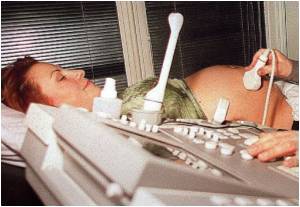Children born by C-section had a delay in the normal development of their gut microbiota, and a higher abundance of potentially harmful bacteria, compared to infants delivered vaginally.

TOP INSIGHT
Mode of delivery was found to alter infants' gut microbiota and this may impact respiratory health in first year of life.
After birth, infants become colonised by an increasing diversity of gut microbes until a relatively stable state is reached. The pace and pattern by which infants acquire their gut microbiome is thought to have a substantial impact on health in later life. Disruption of the normal development of the gut microbiome has been linked with a range of diseases including irritable bowel disease, asthma, allergies and cancer.
Previous research indicates that early life microbiota development is influenced by mode of delivery, although it has been suggested that this depends mostly on maternal antibiotic exposure.
To assess the independent effects of mode of delivery, Marta Reyman, from the Wilhelmina Children's Hospital, Utrecht, the Netherlands, and colleagues analysed the gut microbiota development in 46 C-section and 74 vaginally delivered infants using stool samples collected 10 times during their first year of life. Antibiotic administration to mothers undergoing a C-section was postponed until after clamping of the umbilical cord. Maternal stool samples were also examined 2 weeks after delivery.
Analyses showed that gut microbiota composition differed significantly between C-section and vaginally delivered infants in the first year, which was most pronounced shortly after birth. This was accompanied by measurable faecal seeding (transfer of maternal vaginal microbes) from mother to child in vaginally delivered infants, but not in children born by C-section. In infants born by C-section, the gut microbiota was less stable and the development of the health-promoting bacterial species Bifidobacterium spp. was delayed compared to vaginally delivered children. Additionally, infants born by C-section had much higher levels of potential pathogenic gut bacteria, irrespective of length of hospital stay after birth, feeding type, and antibiotic use.
"Our findings suggest that mode of delivery affects the developing infant gut microbiota, independent of a mother's use of antibiotics during birth. Compared to vaginally delivered infants, children born by C-section have different trajectories of bacterial colonisation, which could have implications for their future respiratory health", says Marta Reyman, who is the PhD student on this study. "Further research and larger studies will be needed to fully understand the consequences of these changes. The insights gained might help to design strategies to prevent health-related problems following birth by C-section."
Source-Eurekalert
 MEDINDIA
MEDINDIA




 Email
Email






